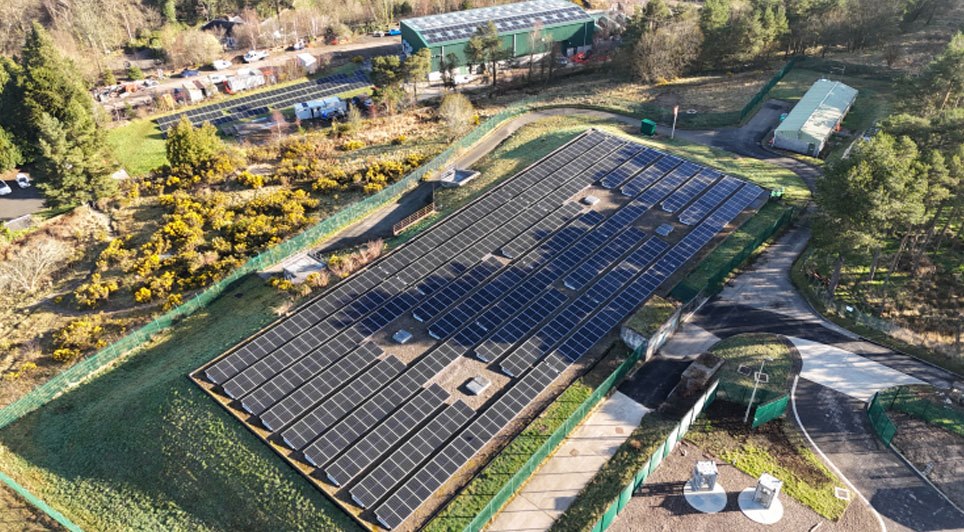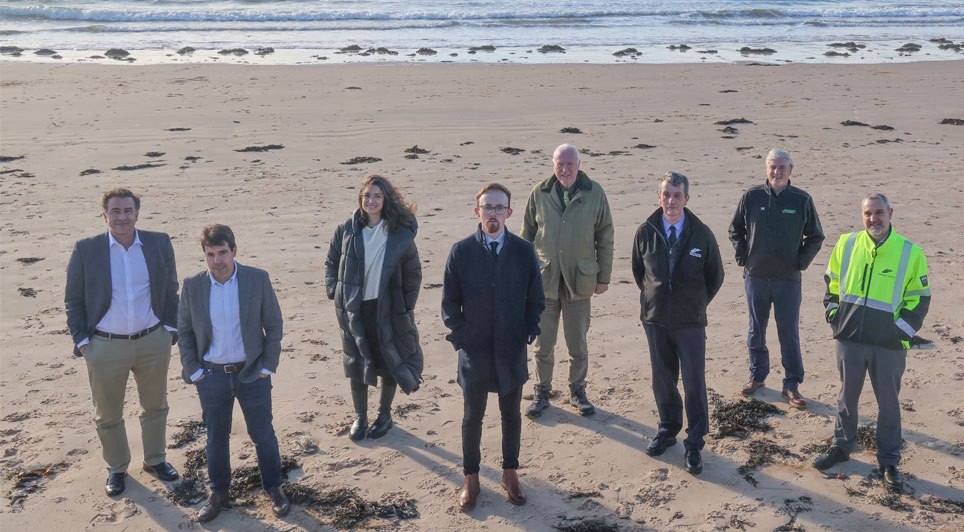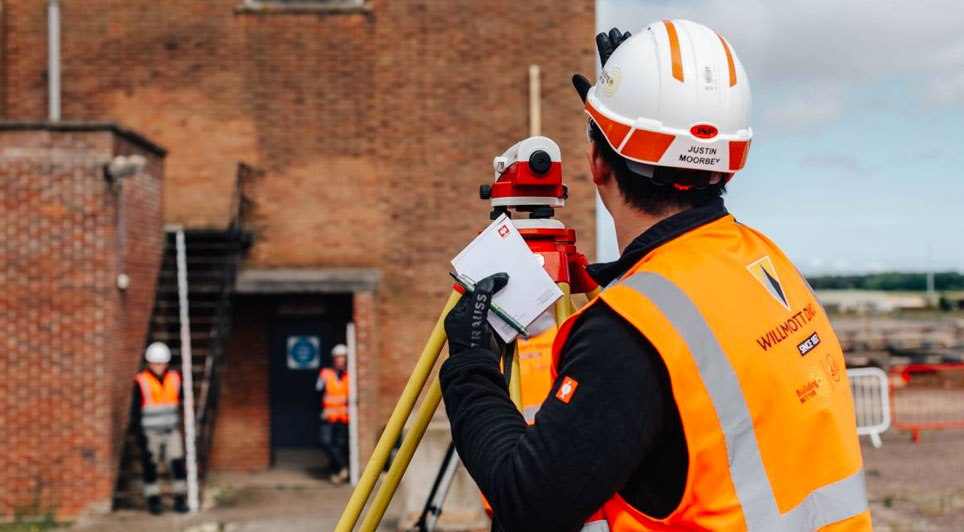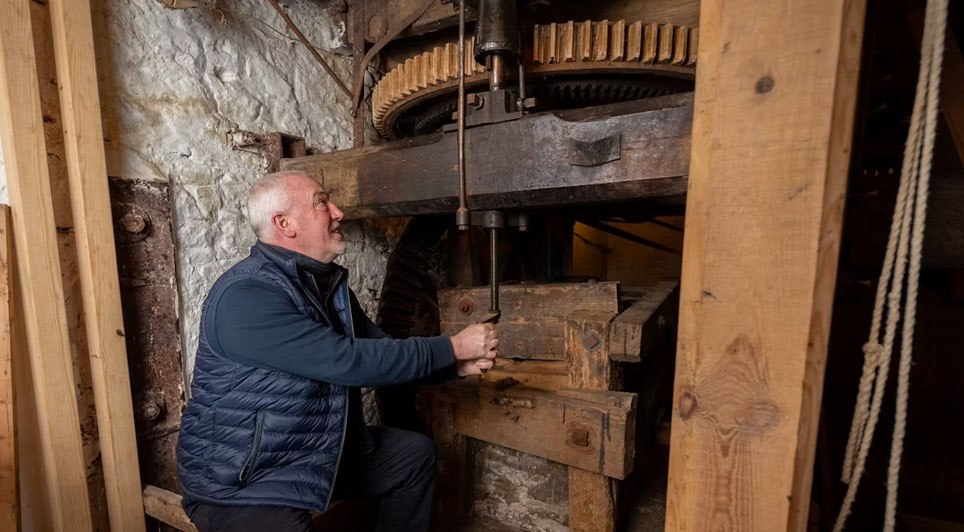Academics from the University of Glasgow have claimed that regulations on
fracking need to be changed, because they are currently "unnecessarily restrictive".
In a report, which is published today (11 November) in the Quarterly Journal of Engineering Geology and Hydrogeology, the two academics added that current limits on vibration are so strict, that if applied elsewhere they would prevent heavy vehicles from driving past homes, or stop people walking on wooden floors.
They also said the risks of serious earthquakes reported to be caused by fracking activity is "considerably lower" than feared.
The report has been written by Dr Rob Westaway and Professor Paul Younger of the University of Glasgow's School of Engineering, and they feel that a new regulatory framework, like one similar to the rules which govern activities such as quarry blasting, would be more appropriate.
Dr Westaway explained: "Currently, the Department of Energy and Climate Change's regulation is that any fracking operation which induces surface vibrations greater than magnitude 0.5 on the Richter scale should be shut down immediately.
"That level of vibration is extremely low. To put it in perspective, if regulations for other vibration-causing activities were similarly restrictive you'd have to prevent buses from driving in built-up areas or outlaw slamming wooden doors.
"By analysing the seismic waves which travel through the earth as a result of fracking activity, we've been able to determine a scale of activity which will create surface vibrations within those already allowed for by quarry blasting regulations.
"For example, induced earthquakes of magnitude 3 from fracking activities 2.5km below the earth's surface will create surface vibrations similar to the limits allowable from quarry blasting."
He added: "Conversely, induced earthquakes at the current UK regulatory limit of magnitude 0.5 would be expected to produce vibrations in a person's home that are smaller than those typically caused by the movement of buses or lorries past the end of their garden and comparable to many other widely-accepted forms of 'nuisance' vibration."
The academics have said that the largest possible fracture which could be created by current drilling processes on properly-surveyed land would be 600 metres long.
Professor Younger said: "We've determined that a fracture of that length created in a single rupture, which is very unlikely, would likely correspond to a maximum quake of magnitude 3.6. That might be sufficient to cause minor damage on the surface such as cracked plaster.
"Again, however, there is already regulation in place for compensation for similar incidents caused by RAF fly-bys or mining operations and we'd suggest it would make sense for similar schemes to be put into place for fracking."
Younger also commented that "the biggest cause of serious seismic incidents" isn't as a result of the drilling or the fracking process itself, but rather "the practice of disposing of waste water back into the borehole once the process is finished."
He said: "This washes away particles of sand holding open the fractures created during the process, which can cause earthquakes."
"In Britain, we've adopted longstanding EU groundwater regulations which bar subsurface disposal of wastewater completely, meaning there is no danger of this sort of event happening here. Instead, the water would be treated and disposed of safely elsewhere," he concluded.
Hydraulic fracturing, or fracking as it is commonly known, is a technique designed to recover gas and oil from shale rock. The process involves drilling down into the earth before a high-pressure water mixture is directed at the rock to release the gas or oil located inside.
(JP/IT)
Construction News
11/11/2014
Fracking Regulations Are 'Unnecessarily Restrictive'

16/04/2025
Construction work on the £5 million repair and refurbishment project at the Loch Centre in Tranent is scheduled to commence in June 2026.
East Lothian Council has announced the anticipated start date for the significant upgrade to the well-used community facility.
Under the current timetable, the

16/04/2025
A £636,000 project to install solar panels at the Gorbals water pumping station in South Ayrshire has been successfully completed.
The scheme aims to provide a renewable energy source for pumping water to thousands of customers in the region.
The project involved the installation of 793 solar pan

16/04/2025
A planning application has been lodged with Glasgow City Council by The JR Group, acting on behalf of Wheatley Group, for the construction of 29 much-needed affordable homes in the Baillieston area of the city.
The proposed development on Caledonia Road will offer a mix of one- and two-bedroom apa

16/04/2025
Residents in 20 blocks of flats across Coatbridge are already experiencing the positive impacts of a recently completed, ambitious energy efficiency refurbishment project.
The extensive construction work has delivered significant improvements to the properties, including the installation of cavity

16/04/2025
Ground investigation works are commencing this month at the proposed site for Orkney Islands Council’s Scapa Deep Water Quay at Deepdale in Holm.
These initial investigations will be followed by marine-based site investigation works scheduled to begin in June.
These works form part of the Pre-Con

16/04/2025
Construction work has been finalised on a significant new housing development in Motherwell town centre, delivering 42 newly built, highly energy-efficient flats alongside the respectful conversion of the B-Listed YMCA building into a further six homes. The project, part of North Lanarkshire Council

16/04/2025
The Construction Industry Training Board (CITB) has today released its year-end performance data for its New Entrant Support Team (NEST), revealing a significant increase in apprenticeship starts. During the financial year 2024-25, NEST supported 4,128 individuals in commencing apprenticeships, a su

16/04/2025
A water-powered mill in Angus is set to grind grain once again after receiving a record-breaking donation to fund its restoration.
The National Trust for Scotland has announced that a long-time member of the conservation charity has gifted an incredible £2.4 million, one of the largest single dona

15/04/2025
Construction of a £70 million student accommodation development at 292-298 St Vincent Street in Glasgow has reached a significant milestone, with the building now visibly rising from the ground.
Drone footage has captured the progress of the project, which is a partnership between developer Artisa

15/04/2025
Energy regulator Ofgem is expected to confirm today (April 15) its finalised Connections Reform process, designed to expedite grid connections for renewable energy projects that are ready and crucial for achieving the UK's clean power targets for 2030 and beyond.
The new connections system, anticip
 Scotland
Scotland UK
UK Ireland
Ireland London
London










